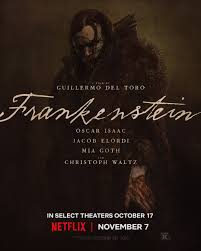Netflix’s Frankenstein: A Modern Adaptation of a Classic Horror

Introduction
The timeless tale of Frankenstein, written by Mary Shelley in 1818, has inspired countless adaptations and interpretations throughout the years. As the landscape of entertainment continues to evolve, streaming services like Netflix are seizing the opportunity to reimagine classic literature for contemporary audiences. The recent announcement of Netflix’s adaptation of Frankenstein has sparked significant interest, garnering attention not just for its source material but also for its potential to appeal to a new generation of viewers who crave both nostalgia and innovation in storytelling.
Details of the Adaptation
Netflix’s Frankenstein, scheduled for release in late 2024, aims to bring a fresh perspective to Shelley’s narrative, focusing on themes of creation, responsibility, and the consequences of playing god. Unlike previous adaptations that often depict the creature solely as a monster, this new rendition will delve deeper into the emotional and philosophical aspects of both Victor Frankenstein and his creation, providing a nuanced view of their complex relationship.
Directed by acclaimed filmmaker Alex Garland, known for his work on Annihilation and Ex Machina, the project is expected to feature a diverse cast that includes rising stars and seasoned actors. The screenplay, penned by screenwriter and horror expert, Daniella Pineda, promises to retain the essence of Shelley’s original work while offering modern audiences an engaging narrative filled with suspense and moral dilemmas.
Relevance in Today’s Culture
The quest for identity and the moral implications of scientific advancements resonate with today’s viewers, particularly in a time when technology is progressing at an unprecedented pace. With ongoing discussions about artificial intelligence and genetic engineering, Netflix’s Frankenstein serves as a launchpad for critical conversations surrounding ethics and humanity’s responsibilities towards its creations.
Conclusion
Netflix’s adaptation of Frankenstein is not just another retelling of a horror classic; it represents an opportunity to explore the intricate themes of creation and consequence in a modern context. As audiences become increasingly engaged with the moral complexities of technology and innovation, this version of Frankenstein is poised to be both a critical and commercial success. The upcoming release will undoubtedly contribute to the ongoing legacy of Shelley’s work, prompting viewers to reflect on the implications of man’s ambition and the enduring question of what it truly means to be human.








